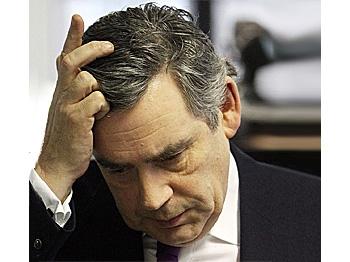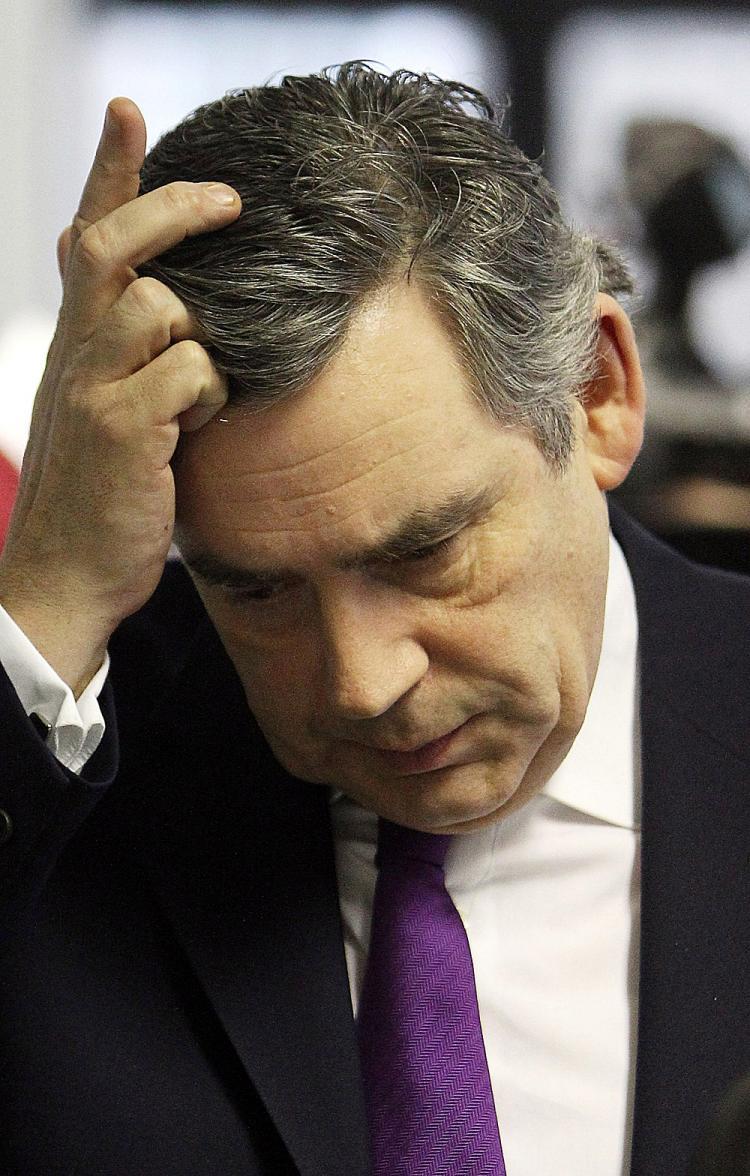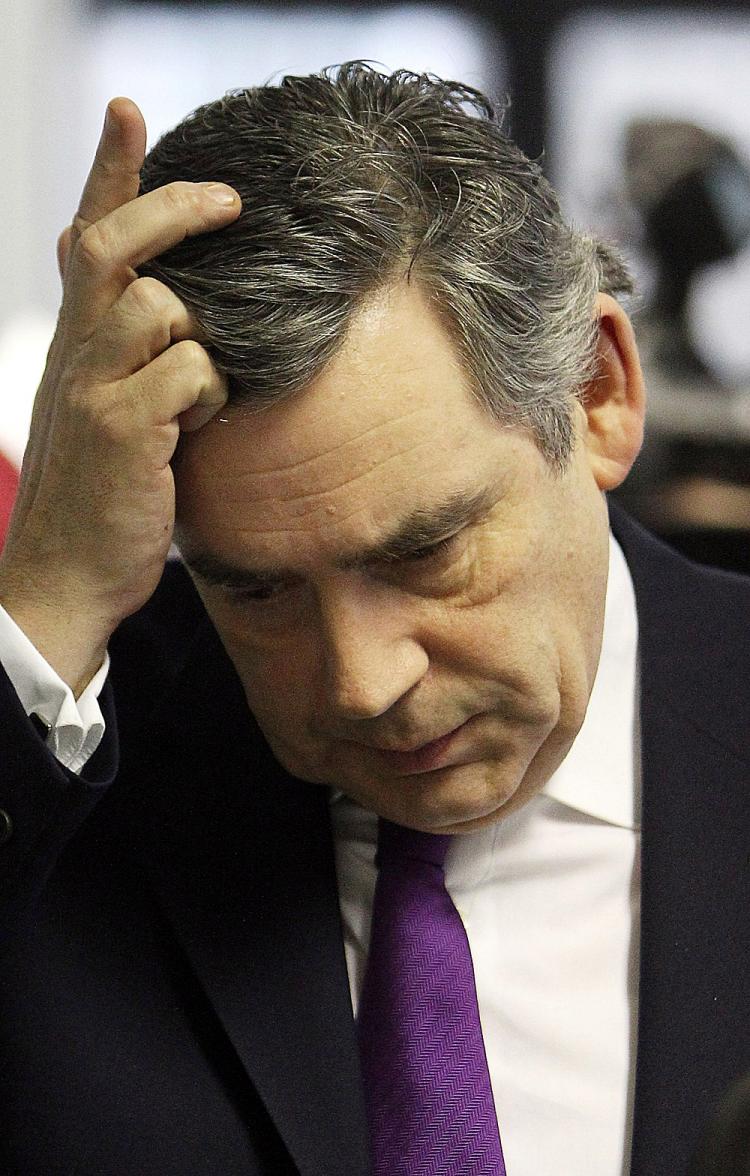LONDON—The timing couldn’t have been worse for Gordon Brown. Just two hours after the prime minister had declared Pakistan as central to Britain’s fight against terrorism, the government was told funding for counterterrorism plans in Pakistan had been cut.
The apparent contradiction on Wednesday also came just days after an official report had criticized the government as weak and dysfunctional and highlighted the lack of coordination between the prime minister’s office and the Treasury.
On Thursday, the government sought to clarify the issue, but not before the political opposition—confidently ahead in the polls just months from an election—had capitalized on the slip-up.
The counterterrorism budget for Pakistan will increase overall, confirmed the Foreign Office, but by less than the government had planned, due to the fall in the pound on the international currency markets.
Foreign Office Minister Chris Bryant said on Thursday that monies for counterterrorism (CT) work in Pakistan will go up from £8.2 million (USD$13.3 million) to £9.5 million (USD$15.4 million) next year—less than had been planned.
Lady Kinnock told the House of Lords on Wednesday that the Foreign Office (FCO) as a whole faced a payment shortfall this year, which would get worse in 2010-2011.
“Programs in Afghanistan in counter-narcotics have been cut, capacity building to prevent conflicts in Africa, counterterrorism, and radicalization in Pakistan, the list goes on,” she said.
Only two hours earlier, Gordon Brown had made a statement to the House of Commons in which he specifically mentioned the Afghanistan Pakistan border areas.
“The action we are taking to counter terrorism at its source in the Afghanistan Pakistan region and elsewhere is a central part of our wider counterterrorist strategy,” he said.
“Al-Qaeda’s affiliates and allies—pushed out of Afghanistan and under increasing pressure in Pakistan—are seeking to exploit other areas with weak governance like parts of Yemen, Somalia, and the Sahel.”
Yemen has been highlighted since Umar Farouk Abdul Mutallab, who allegedly tried to detonate explosives on Northwest Flight 253 from Amsterdam to Detroit, revealed he had been strongly influenced by al-Qaeda in the Yemen.
Only just clambering out of recession, Britain is facing years of deep cuts across public services to pay off the vast national debt used to stay afloat in the financial crisis and accumulated over the decade before. Compared to most countries, Britain has been slow to recover from the impact of the crisis that saw the value of the pound drop heavily.
The opposition representative on foreign affairs, William Hague, said in a statement, “Pakistan has been identified as one of the major sources of the terrorist threat to this country.
“Cutting FCO expenditure on counterterrorism programs in Pakistan because of the movement of exchange rates is clearly not the way to run an effective foreign policy.”
Labor MP Kim Howells, chair of the intelligence and security committee and a former Foreign Office minister, told BBC Radio 4’s Today program on Thursday, “I don’t think that this immediately is affecting the hard end of our counterterrorism activities.”
The apparent contradiction on Wednesday also came just days after an official report had criticized the government as weak and dysfunctional and highlighted the lack of coordination between the prime minister’s office and the Treasury.
On Thursday, the government sought to clarify the issue, but not before the political opposition—confidently ahead in the polls just months from an election—had capitalized on the slip-up.
The counterterrorism budget for Pakistan will increase overall, confirmed the Foreign Office, but by less than the government had planned, due to the fall in the pound on the international currency markets.
Foreign Office Minister Chris Bryant said on Thursday that monies for counterterrorism (CT) work in Pakistan will go up from £8.2 million (USD$13.3 million) to £9.5 million (USD$15.4 million) next year—less than had been planned.
Lady Kinnock told the House of Lords on Wednesday that the Foreign Office (FCO) as a whole faced a payment shortfall this year, which would get worse in 2010-2011.
“Programs in Afghanistan in counter-narcotics have been cut, capacity building to prevent conflicts in Africa, counterterrorism, and radicalization in Pakistan, the list goes on,” she said.
Only two hours earlier, Gordon Brown had made a statement to the House of Commons in which he specifically mentioned the Afghanistan Pakistan border areas.
“The action we are taking to counter terrorism at its source in the Afghanistan Pakistan region and elsewhere is a central part of our wider counterterrorist strategy,” he said.
“Al-Qaeda’s affiliates and allies—pushed out of Afghanistan and under increasing pressure in Pakistan—are seeking to exploit other areas with weak governance like parts of Yemen, Somalia, and the Sahel.”
Yemen has been highlighted since Umar Farouk Abdul Mutallab, who allegedly tried to detonate explosives on Northwest Flight 253 from Amsterdam to Detroit, revealed he had been strongly influenced by al-Qaeda in the Yemen.
Only just clambering out of recession, Britain is facing years of deep cuts across public services to pay off the vast national debt used to stay afloat in the financial crisis and accumulated over the decade before. Compared to most countries, Britain has been slow to recover from the impact of the crisis that saw the value of the pound drop heavily.
The opposition representative on foreign affairs, William Hague, said in a statement, “Pakistan has been identified as one of the major sources of the terrorist threat to this country.
“Cutting FCO expenditure on counterterrorism programs in Pakistan because of the movement of exchange rates is clearly not the way to run an effective foreign policy.”
Labor MP Kim Howells, chair of the intelligence and security committee and a former Foreign Office minister, told BBC Radio 4’s Today program on Thursday, “I don’t think that this immediately is affecting the hard end of our counterterrorism activities.”






